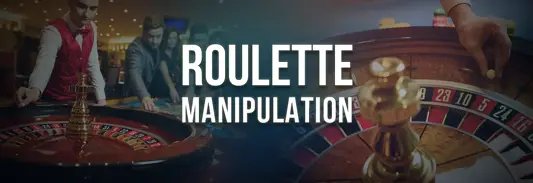Casino Games Strategies and Tips
If you enjoy playing casino games, then the chances are that you are looking for ways to increase your chances of winning. No matter what type of game you enjoy, there are gambling strategies that can help you along the way. Whether you enjoy slots, blackjack, roulette, or any other casino game, we have articles that are sure to be of interest explaining betting strategies, blackjack strategy charts, and much more.
When it comes to gambling strategy, there are certain things that every player can benefit from, whether a complete beginner or a true professional. Our articles are packed with gambling tips that will elevate your casino strategy and hopefully result in you enjoying more winnings than ever before.
Every August, a curious mix of characters descends on Las Vegas for DEFCON, the hacker conference that may soon become one of the most important gatherings in modern democracy.
Successful scammers rely on human nature more than anything else.
The greatest threat to the integrity of casino games comes from crooked dealers, though even careless dealers or sloppy processes can pose significant risks.
High rollers, who are often referred to as ‘VIP’ players, are known for their willingness to stake significant amounts in pursuit of equally substantial rewards.
In the realm of gambling, players must strike a balance between vigilance and paranoia.
One of the perks of traveling frequently is the opportunity to explore both new and familiar places firsthand, always setting aside some time for what I call ‘scamwatching.’
Gambling involves more than just taking risks for money.
As the cost-of-living surges worldwide, the price of gambling is rising on multiple fronts.
One of the common pitfalls in discussing the multitude of ways we can be cheated, deceived, or just plain robbed is that it’s easy to succumb to paranoia and start seeing deception in every interaction and around every corner.
In our digital era, scams are evolving at a pace that keeps even the most tech-savvy individuals on their toes.
If you're serious about legally beating casino games, then counting cards in blackjack games is either already on your radar or somewhere in your rear-view mirror.
Gambling, investing, or even just banking online are perfectly normal activities that come with varying degrees of risk.
We live in a world that increasingly depends on technology and constantly evolving forms of communication.
Some con games are as old as the hills, yet many people around the world are still fooled by them because they haven't taken the time to research the scams targeting travelers in specific destinations.
Welcome to the second part of our two-part blog series on progressive roulette betting systems.
In the evolution of gambling, progressive betting was the first (and the last) form of “forcing” an objective strategy to be applicable to and effective in casino games governed by pure luck, like roulette is.
Gambling inherently involves a degree of risk, tempered by a player’s skill and strategy, yet there is always the looming threat of deception, skewed odds, or unfair practices.
The threat of hacking is a constant concern and hackers have a collection of hardware tools at their disposal, each capable of compromising devices and networks in various ways.
Cheating at cards through sleight of hand is a high-risk endeavor, where there's often a fine line between taking a bad beating and receiving a harsh beating.
The methods of deception, much like many elements of life, seem to cycle through periods of relevance.
Life is inherently about taking risks, whether it's as mundane as walking down the street or as significant as boarding a plane, from making savvy investments to deciding how much to wager on the turn of a card.
The essence of gambling lies in the fair and random element that forms the backbone of numerous games.
Each year, fresh iterations of traditional scams emerge despite technology firms' efforts to fortify security protocols.
I recently revisited the annual World Game Protection Seminar in Las Vegas, a by-invitation-only event that has seen year-on-year growth aimed at addressing the evolving threats within the gaming sector.
I frequently muse over how modern technology rejuvenates old scams.
Knowing how to spot potential deception is crucial when money is involved in a financial transaction, especially in gambling.
Gambling can expose us to new vectors of deception as con games constantly evolve to target various groups.
Some of us left mathematics behind long ago after graduating from school and not necessarily with regrets.
I recently spent a weekend consulting someone about ways to conceal effective gaming strategies online, and the topic of less profitable systems came up.
The Fibonacci system of betting is a particular negative progression system, which assumes increasing the stakes when you loose or/and decreasing the stakes when you win.
Online gambling is mostly a safe practice if we limit our play to reputable sites and reliable.
One of the most popular betting systems in roulette, perhaps the most used after the Martingale is the so-called D’Alembert system.
Casinos work hard to protect themselves from cheaters and advantage players, but as the industry expands and evolves in all directions.
I’m often amazed by the never-ending parade of dangers and deceptions that target gamblers, seemingly forgotten scams re-invented for modern victims.
Recently, we’ve discussed how potential victims might be approached and manipulated into unexpected situations beyond their control.
Casinos have a simple, indefatigable advantage against players, which allows them to build enormous resorts.
Gambling is intended - at least by those who offer games to the public.
Playing against the house usually means playing with a negative expectation, but when luck is on our side, we can sometimes walk away with a healthy (or enormous) profit.
When gambling on any type of game or investment opportunity, there’s a powerful psychological enemy that’s always working against us.
Whatever our profession or pursuits, all of us are potential targets for crimes of deception.
Knowledge of deception is an essential tool in all walks of life, especially when gambling.
In this article, we’ll examine a classic form of theft that targets gamblers in the casino industry.
Most advantage players understand that assistance from computers or off-table confederates may be a red line for casinos and gambling sites.
The dream of many gamblers is to defeat the harsh reality that the house always wins in the long run.
If I were to estimate how long it took human beings to start cheating in games of chance from the moment of that game’s inception, I think a conservative guess would be about five minutes.
Gambling is - of course - all about risk, but in games of chance, there’s a certain authenticity to even the wildest of situations that is very hard to emulate when cheating.
As gambling continues to flourish on the internet, players might be forgiven for wondering if online casinos and card rooms are as honest and trustworthy as their real-world counterparts.
I’ve written a great deal about cheating and advantage play, but a line must be drawn between legitimate deception, deceit, and outright cheating in poker.
In the last decade, casino table games have increasingly employed shuffling machines rather than dealing by hand.
The ongoing cat-and-mouse game between casino operators, cheaters, and advantage players has resulted in thousands of stories.
Poker (along with blackjack) is one of the very few games of chance that have had the privilege of being subject to academic research and publications concerning the complexity of their strategies.
As I've discussed elsewhere, using marked cards is not as easy as you might presume, and getting those cards into a desired game can be extremely difficult.
Marked cards seem like the perfect way to beat almost any game.
In the Marked Deck Basics article, I shared details on the types of marked cards that exist.
Blackjack has a double reputation among casino games.
Advantage players are constantly looking for legal vulnerabilities in any game where they can secure an edge against the house, but there's a line most won't cross.
When playing casino table games, there may seem to be a few that are almost impossible to cheat or to beat.
While many people are aware that blackjack is vulnerable to something called "card counting".
Randomness exists in gambling as a necessity, and the games are constructed so as to provide randomness (excepting, of course, fraudulent games).
There are many ways to beat the blackjack game without resorting to cheating.
Card counting systems can be quite complicated, requiring the player to track several ranges of values or maintain a side count while keeping up with the true count.
In recent articles, I’ve discussed the realities of using concealed devices against casinos or in private games.
The idea of using concealed devices may seem like a cure-all for problems that advantage players must overcome when trying to beat the house.
There’s more to card counting than the basic principle of tracking high and low cards.
Casinos spend millions on protecting their games, but often, cheaters and advantage players find the greatest weakness at the house’s first line of defense.
Imagine finding a game where the casino offers players an opportunity that’s technically within the law but skirts the line between being an advantage play technique and cheating the casino blind.
For decades, the slot game has remained one of the most popular games of chance.
Whenever I think of Advantage Play, I tend to lean towards games that offer the opportunity to gain an edge against the house, turning each bet into a positive proposition regardless of the outcome.
There are multiple groups online discussing the tactic of playing real money blackjack until a pre-determined profit is obtained and then walking away without risking those winnings.
The gambler’s fallacy is defined as one’s fallacious belief that the likelihood of the occurrence of a random event is influenced by previous instances of that type of event.
Winning at poker is not easy, regardless of which poker variant you choose to play, but some poker games are even more difficult than others.
Have you seen poker played on TV or at the local casino, and you are wondering how to learn the game fast and jump into some action?
The struggle to beat roulette over the history of gambling has led to the conception of all sorts of betting strategies or systems, and in this exercise, simple players and game theorists were involved as well.
There's a difference between cheating and playing a perceived "fair" advantage that improves your odd, whether against the house or fellow players.
Whatever kind of poker game you are playing in, it is the mandatory bets, called the blinds, that make the action go and determine the flow of chips.
Ante is a forced bet used in poker tournaments in addition to the blinds to build up the pot.
If you ask poker players which they enjoy more, pulling a big bluff or catching someone trying to pull one on them, the latter would probably end up being a winner.
An old saying in poker goes: "if you never get caught bluffing, you're not bluffing enough."
A frequent but rarely analyzed strategy for static betting in roulette is to use bets of a large coverage.
Playing good poker is all about knowing when to bet and how much in various situations.
The animal analogies have been around the poker world for decades, with players ranging from whales to fishes, donkeys to sharks, who all have a special place in the ecosystem.
A couple of elements that make roulette such an attractive game of chance are the freedom that the players have in placing their bets.
As every casino game comes with a negative expected value, one could argue that gambling is a sucker bet in itself.
If you have been reading poker forums or watching training videos in the last five years, GTO is a term you have surely heard before.
If you were playing poker back in the early poker boom days, you might remember Phil Hellmuth’s book “Play Poker Like the Pros”.
The importance of position in poker cannot be overstated, no matter which format you play.
Every classical game of chance has evolved in more or less popular versions over time, and roulette is not an exception.
If there is one thing that many poker players don’t understand well enough or underestimate its importance, it is the power of position.
Many believe there is no difference between gambling strategies and that the final results cannot be changed.
Despite the simplicity and transparency of the game, the mathematics of roulette involves elementary to advanced mathematical structures and models based on the set of placements allowed to be made on the table for the roulette bets.
People are continually looking for ways to gain an advantage when gambling and reduce the casino’s house edge.
Many people, in particular those who are visiting a casino for the first time, are immediately drawn to the penny slot machines.
Over the last few years, Megaways slots have become enormously popular at online casinos.
If you are a poker enthusiast who is still learning the game, then there is every chance that you have heard of the term “hijack seat” but may not understand it.



























































































